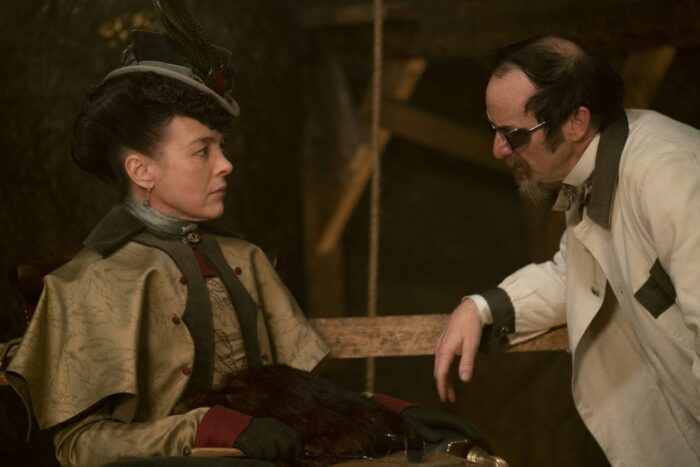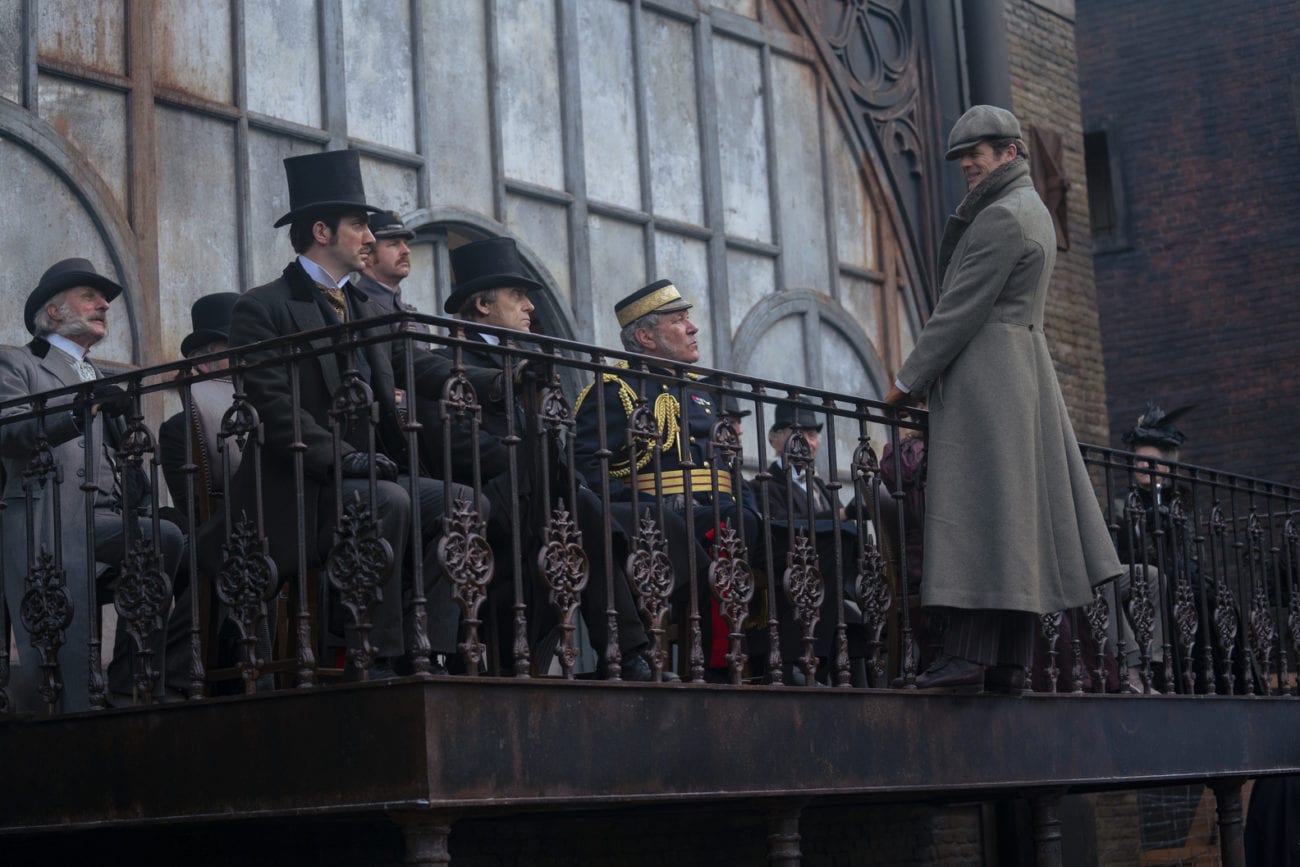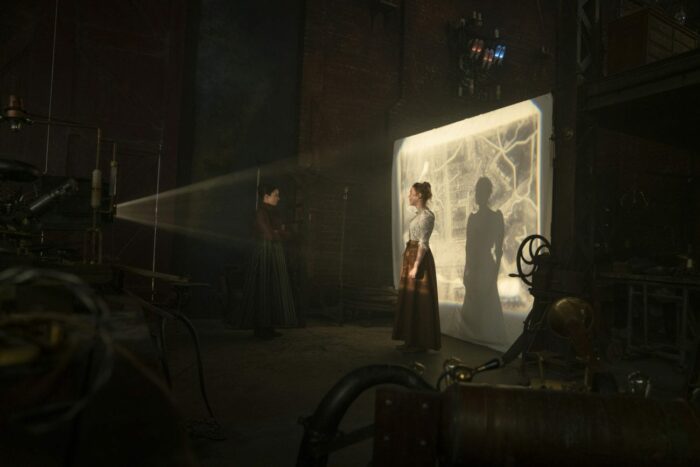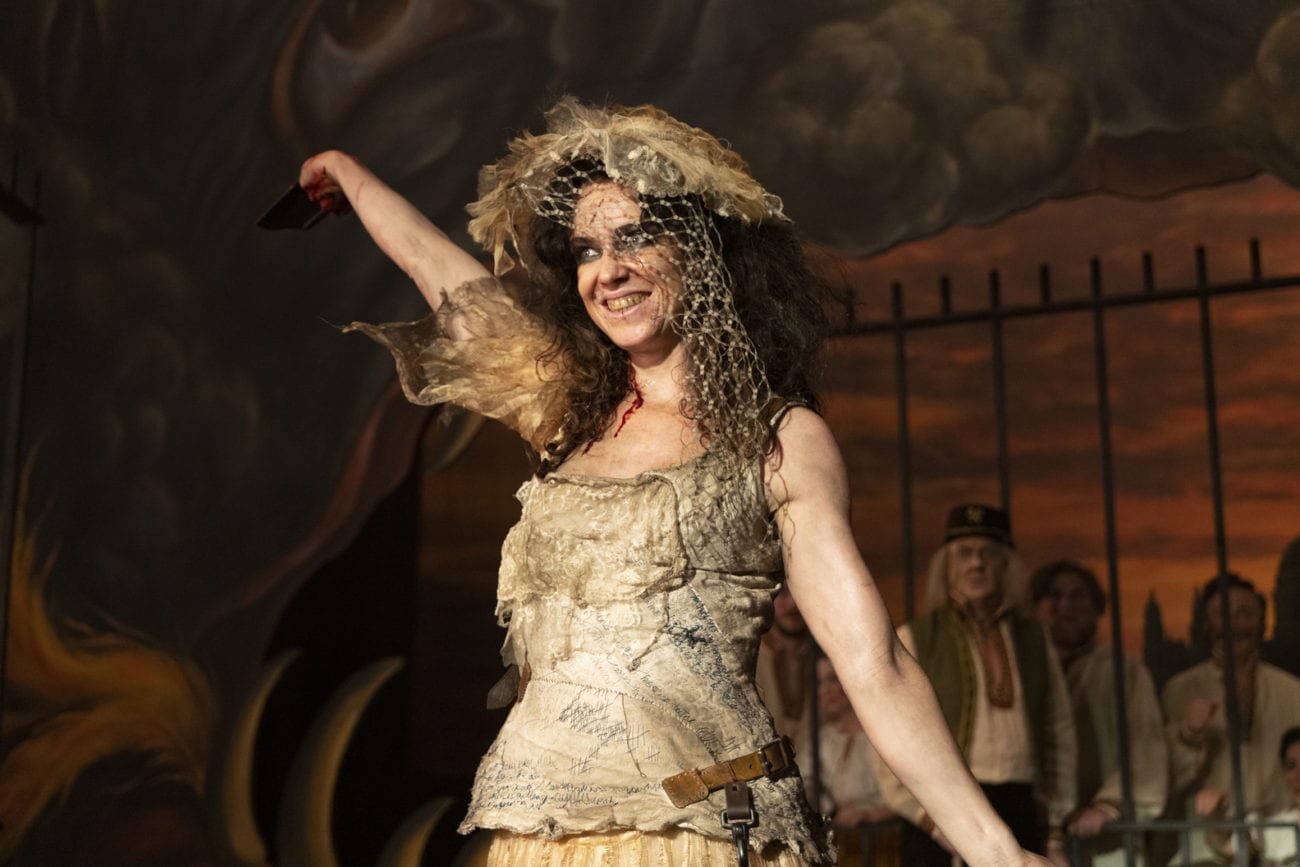The following contains spoilers for The Nevers S1E5, “Hanged”
An episode of TV is a strange thing. It can vary in length of course, and may or may not be structured around planned ad breaks. The best episodes, in my humble opinion, circulate around a thematic core, with various plot threads and character developments hanging together in the background. Others are fundamentally just a collection of things that happen, but this can still be quite enjoyable and provide food for thought, whether about where the plot itself is going, or about broader—maybe even philosophical—questions.
These are the sorts of things I look for when I set out to write about an episode of television—it’s themes and the questions it raises, the character developments and ethical quandaries that arise over the course of the hour, and any insights that may emerge in my own thinking therefrom.
I have been trying to approach The Nevers in that same usual way, to varied degrees of success, but meaningfully with S1E5 (“Hanged”) I feel like I just have to throw my hands in the air and go along for the ride.
The very plot of The Nevers continues to strike me as the biggest question, and it is a bit bewildering to be five episodes in and still feel relatively clueless as to what this show is about. I suppose that will have to come later, along with retrospective assessments of its characters and their actions. Who are these people, what do they want, and why? I keep feeling like I’m missing something, but it’s not there and I can’t quite fill it in by inference.
The big picture is fuzzy, but the moments that compose it are often a lot of fun. And I do have to say that I enjoyed watching S1E5, even if as it ended I felt more confused than I had when it began. Perhaps the episode was meant to leave us…hanging?
(Should I apologize for that pun or should the writers of The Nevers? I’m not sure.)

Let’s gather questions: what is the orb Lavinia and Hague observe? Is this what Amalia is looking for? What exactly is her connection with it? Does this relate to what she did to Sarah? What did she do to Sarah? Did this turn Sarah into Maladie somehow? Why is the orb cracking? Is it there intentionally or unintentionally? Presuming this is the ship we saw in the pilot, did the ship crash or land? (I think it crashed.)
Why does Amalia believe she has a mission? What is that mission? Does the mission predate the ship/orb being underground or come after that? Is the mission to find it? How does the future of the world depend on it? Does that mean the whole world or just the world of the Touched? And what even happened to the group she led in S1E5? Are we supposed to be able to infer this, or is it another mystery? I’m all for innovative storytelling, but sometimes The Nevers feels like a book with pages torn out.
How does Hugo factor into this story when it comes down to it? What did “Effie Boyle” whisper into his ear? Did he know that she was the real Maladie when he went to the public execution of not-Maladie? Or was he just there to watch the hanging? It seems rather odd that he would be, and his exchange with Massen hints at some ulterior motive, but his motives in general remain hard to determine. Of course he wants to make money, but I suppose the stumbling block to me here is that attending a public execution doesn’t seem to relate to that. So maybe he was just going to the show? Is it the spectacle of seeing an event that was supposed to be banned?

Why does Penance want to save Maladie? She claims to have felt something in her gut after seeing the nooses hanging outside of the orphanage, and it is easy enough to understand her disgust and moral outrage at the way in which the public is turning against the Touched and painting them all as monsters. But isn’t trying to resuce Maladie kind of proving their point, or at least risking the appearance thereof? Surely Amalia is right about this—saving Maladie is a bad idea. But it is also a bit hard to fathom at the level of character motivations.
Sure, it’s been established that Penance is very against killing people, and it tracks with her character that she wouldn’t want Maladie to die or be willing to say she deserves to die, etc., but it goes well beyond that to hatch a risky scheme to stage a rescue. So it feels almost implausible that others go along with her and take little convincing. It’s not that her position is wrong at a moral level, necessarily (though some would say it is), but that as a matter of strategy it seems rather stupid.
Maladie may be a symbol of the Touched in the eyes of those who want to see her hang, and the execution may be public for those reasons—less justice and more a festival of schadenfreude. S1E5 further shows us the way in which the Touched are being forced to register with the authorities and wear identifying ribbons. All of which is terribly objectionable—horrific even—and reminiscent of the actions of the Nazis (which would historically postdate the setting of The Nevers of course), but Maladie is also an unrepentant serial killer and everyone knows this. Does Penance truly think the right move nonetheless is to show solidarity between the Touched and one of their own, despite her heinous actions?
I don’t think so. The best I can make of Penance’s motives is to place them at a more personal and religious level. But frankly I think she is being downright naïve in pursuing her plan. And since I care about what happens to her and the other orphans, I’m glad she failed.
Because not-Maladie was committed to dying and jumped to make the noose snap her neck…

If Maladie replaced herself with a double who then hanged herself…why? We did see the young woman who became not-Maladie before in S1E2, cutting off her toes, so her devotion to a God that demands sacrifice tracks. I’m wondering more about Maladie’s motives.
Maladie imitated the reporter Effie Boyle…why? And she staged a murder to look like someone poorly trying to copy her, such that it was Boyle’s unidentified corpse Frank Mundi investigated in the pilot? OK, somehow that aspect of all of this makes the most sense to me.
Was this all Maladie’s plan from the beginning? That seems downright baroque, and it’s hard to believe that it could have been such an elaborate scheme, laid out step by step from before the beginning. But perhaps she adjusted along the way to circumstances as they arose. Still, what is her goal here? To electrocute and kill the onlookers who wanted to see her hang? To provoke chaos in London?
Perhaps there is a clue in the poem/song we hear not-Maladie in prison lull, which is Christina Rossetti’s “One Sea-Side Grave”:
Unmindful of the roses,
Unmindful of the thorn,
A reaper tired reposes
Among his gathered corn:
So might I, till the morn!Cold as the cold Decembers,
Past as the days that set,
While only one remembers
And all the rest forget, –
But one remembers yet.
Let me know if you find one.
It’s hard for me to land on a better interpretation than one along the lines of Amalia’s quip about how Maladie might stab Penance because she thinks it’s funny. Perhaps the best way to read the overall action of The Nevers at this point would be to imagine Maladie turning to the camera at the end of S1E5, after removing her disguise, and exclaiming, “The Aristocrats!”

All of the political and ethical questions I’ve raised since the beginning continue to hang over The Nevers, but the problems themselves have just gotten murkier as we’ve gone along. And there are other plot threads dangling from previous episodes that S1E5 does little to nothing to weave in, such as the issue of Amalia’s face or whether Massen has his daughter locked in his basement.
Will things become clearer as Episode 6 closes out the show’s inaugural run? We’ll find out next week.

